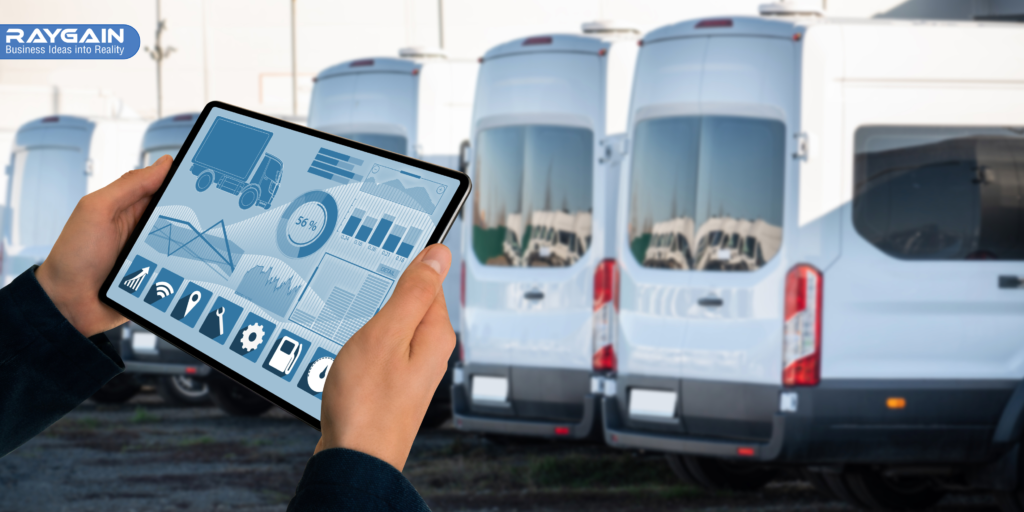In today’s fast-paced transportation and logistics landscape, keeping fleets safe and efficient is a top priority. A vehicle monitoring system provides real-time tracking, behavioral insights, and intelligent automation to help businesses achieve operational excellence. As businesses increasingly rely on data to drive decisions, vehicle monitoring becomes essential to protect assets, enhance performance, and ensure compliance.
What is a Vehicle Monitoring System?
A vehicle monitoring system combines GPS, telematics, and IoT-based sensors to collect, transmit, and analyze data from vehicles in real-time. It monitors various parameters including speed, location, fuel usage, maintenance needs, and driver behavior. Fleet managers use this data to improve safety protocols, reduce operational costs, and ensure that vehicles run at peak performance.
These systems are particularly valuable for logistics companies, delivery services, construction fleets, emergency services, and public transportation providers.
Safety-First Approach
Safety is one of the primary benefits of implementing vehicle monitoring systems.
- Driver Behavior Monitoring: Identifies aggressive driving behaviors such as harsh acceleration, sudden braking, sharp turns, and speeding. Fleet managers can coach drivers to adopt safer habits, reducing the risk of accidents.
- Collision Prevention and Response: Real-time alerts help drivers avoid potential collisions. In the event of an incident, managers receive instant notifications to initiate quick response or assistance.
- Maintenance Scheduling: Proactive maintenance alerts based on mileage, engine diagnostics, and part wear prevent breakdowns and extend vehicle life. Timely servicing also improves roadworthiness.
Efficiency-Driven Performance
Operational efficiency can make or break a business. Vehicle monitoring systems optimize workflows and boost productivity.
- Real-Time Location Tracking: Fleet managers can monitor every vehicle’s position, helping to reroute them during traffic or emergencies.
- Route Optimization: Advanced algorithms find the most fuel-efficient and time-saving paths, leading to quicker deliveries and fewer delays.
- Fuel Management: Monitor fuel consumption patterns, detect fuel theft, and reduce idling time to lower expenses significantly.
- Load Management: Helps ensure proper vehicle load distribution, reducing mechanical stress and preventing regulatory violations.
Enhancing Customer Experience
Happy customers are repeat customers. Timely and predictable deliveries, accurate ETAs, and fast issue resolution are all enabled by vehicle monitoring.
- Improved Delivery Accuracy: Real-time visibility allows companies to provide reliable ETAs and updates to clients.
- Reduced Downtime: By avoiding unplanned stops and ensuring regular maintenance, fleets can maintain consistent delivery schedules.
- Service Transparency: Customers appreciate the ability to track deliveries in real-time—an industry-standard in modern logistics.
Ensuring Compliance and Reducing Risk
Vehicle monitoring systems also help organizations meet regulatory requirements and reduce liabilities.
- Hours of Service (HOS) Compliance: Log driver hours automatically to ensure compliance with labor regulations and reduce fatigue-related accidents.
- Emission Monitoring: Ensure that vehicles meet environmental standards and stay ahead of sustainability goals.
- Insurance Benefits: Some insurance companies offer lower premiums for fleets with monitoring systems, as they reduce accident rates and risk.
Use Cases Across Industries
- Logistics & Transportation: Real-time delivery tracking, fuel cost reduction, and optimized logistics planning.
- Emergency Services: Fast dispatch and efficient routing for ambulances, fire trucks, and police vehicles.
- Construction & Mining: Monitor off-road equipment, ensure vehicle compliance, and track usage in rugged environments.
- Public Transit: Improve punctuality and passenger safety with live location and predictive maintenance.
Future of Fleet Management with AI and Data Analytics
AI-driven analytics can interpret vehicle monitoring data to predict maintenance needs, optimize fuel strategies, and detect driver fatigue before incidents occur. Integration with cloud platforms allows remote monitoring and advanced reporting.
The evolution of vehicle monitoring systems is closely tied to the rise of autonomous vehicles, 5G, and V2X (Vehicle-to-Everything) communications. Businesses that adopt these technologies today gain a major competitive edge.
Why Choose Raygain Technologies?
At Raygain Technologies, we offer robust, scalable, and secure vehicle monitoring solutions customized for your industry needs. Our systems are designed to deliver maximum visibility, control, and ROI. From real-time GPS tracking to predictive analytics, Raygain is your trusted partner in smart fleet management.
📞 Want to experience seamless fleet safety and efficiency? Contact Raygain Technologies today to schedule your free consultation and learn how our vehicle monitoring systems can transform your operations.










